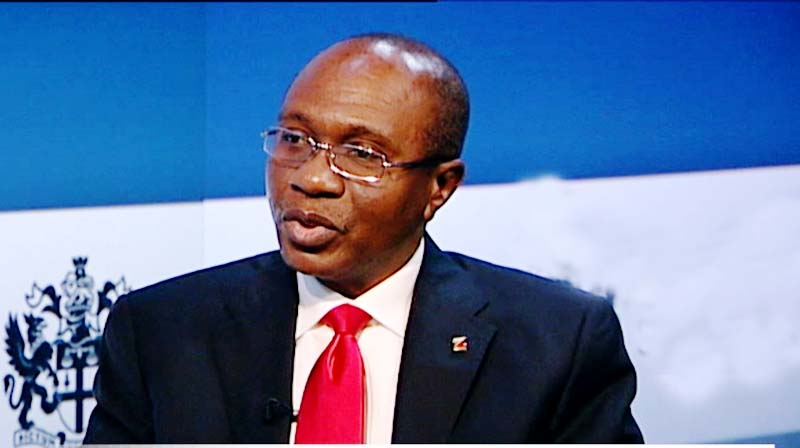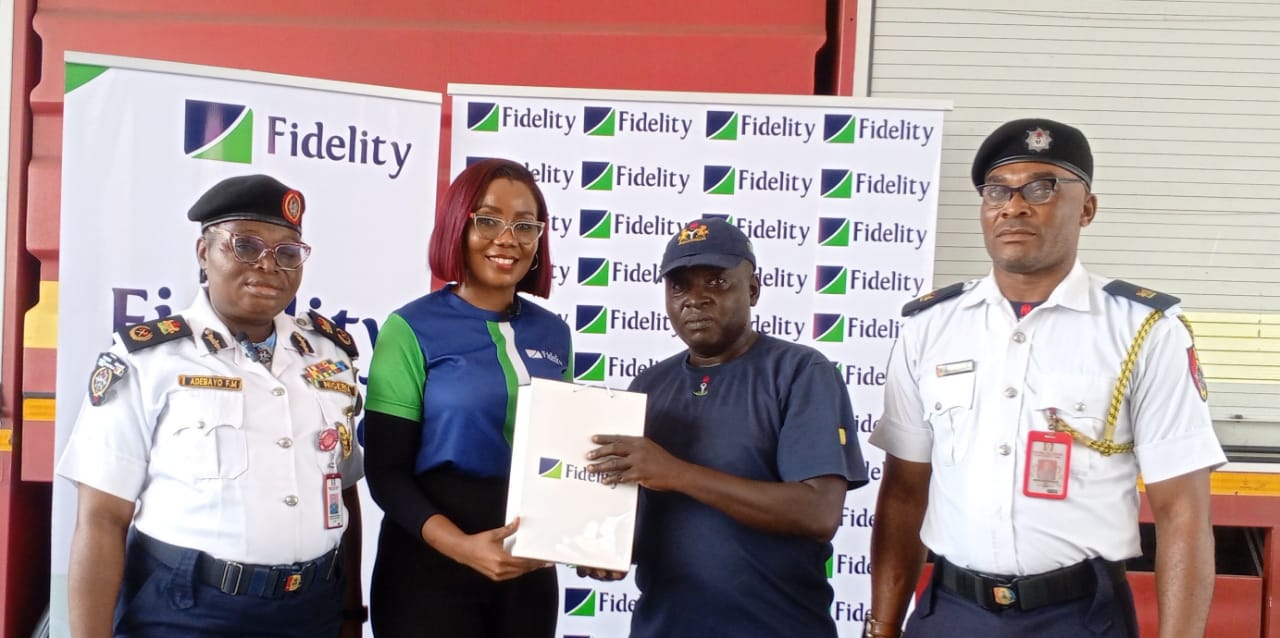Business
CBN Declares No Going Back on Cashless Policy, Says only 10% of Customers to Be Affected

The Central Bank of Nigeria on Friday said it would continue to implement the cashless policy in line with its mandate to ensure an efficient payment system.
The CBN Governor, Mr Godwin Emefiele, said this while briefing journalists shortly after the Monetary Policy Committee meeting.
He said that contrary to claims in some quarters that many Nigerians would suffer the negative impact of the policy, only about five to 10 per of bank customers would be affected.
The apex bank had in a circular to Deposit Money Banks stated that from Wednesday, September 18, it would impose three per cent processing fees on withdrawals and two per cent processing fees on lodgements of amounts above N500, 000 for individual accounts.
For corporate accounts, the apex bank in the circular said that DMBs would charge five per cent processing fees on withdrawals and three processing fee on lodgements of amounts above N3m.
The House of Representatives had on Thursday through a resolution directed the apex bank to suspend the policy.
But responding to the development, Emefiele said if the Nigerian economy was to compete effectively with those of developed countries, a payment system that encourages the use of non-cash channels was desirable.
He said that before the cashless policy was first inaugurated in 2012, a lot of stakeholder engagements were done to sensitise Nigerians on its benefits.
He said the policy was suspended in 2014 to allow more payment channels to be developed by Deposit Money Banks.
The governor said that since the policy was suspended, currency management cost had continued to increase year-on-year at an average annual growth rate of 33 per cent.
However, he said the bank had continued to provide alternative channels, adding that people had embraced it.
He said Point of Sale transactions had moved from N48bn in 2012 to N2.2tn while electronic transfer had moved from N3.8tn in 2012 to N80.46tn in 2018.
Emefiele said, “Since the policy was first launched, currency management costs have continued to increase year-on-year at an average annual growth rate of 33 per cent.
“Notwithstanding, electronic transactions have increased within the economy. We have provided alternative channels and people have embraced it.
“This is a strategic timing of these actions because on Monday, September 23rd, the mutual evaluation by GIABA (Inter-governmental Action Group Against Money Laundering in West Africa) on the country’s anti-money laundry and CFT (Combating Financing of Terrorism) regime will begin.
“Passing the mutual evaluation positions Nigeria as a safe and credible destination for financial transactions across the world.
“GIABA will be in Nigeria to access the rate at which Nigeria has embraced anti-money laundry and CFT regime. It is important that we display and show to them that Nigeria is indeed in conformity with their practices as enshrined in their anti-money laundry and CFA laws.”
The apex bank boss said if the CBN did not implement the cashless policy, credit cards owned by Nigerians might not be used abroad.
On the Value Added Tax, he said the MPC supported the decision of the Federal Government to increase the rate from five per cent to 7.5 per cent.
He said with Nigeria having one of the lowest VAT rate in the world, and faced with fiscal challenge, the best way to shore up revenue was to increase tax.
He said, “The MPC endorsed the increase in the VAT rate from five per cent to 7.5 per cent. The government has the responsibility to fend for everybody.
“In fending for everybody means that it has to spend money to provide infrastructure – roads, airports, different things that will improve the lives of its people.
“There are two ways through which government can fund these expenditures. It’s either it raises revenue or goes for debt. You all know that the government has been criticised that the debt stock is too high.
“You all know that government debt service ratios are too high. What that means is that your revenue is small because if your revenue is large, then your debt service ratios will be lower.”
He added, “If we say government should not borrow; then, government must raise revenue. If government must raise revenue and we think this is one way government can raise revenue to meet its obligation.”
Emefiele said while the decision to increase VAT might be painful to Nigerians, the benefit of such move far outweighed the cost.
On the Monetary Policy Rate, Emefiele said this was left unchanged at 13.5 per cent.
He explained that nine out of the 11 members that attended the meeting unanimously agreed to hold the monetary policy stance.
The governor said apart from the MPR that was retained at 13.5 per cent, the committee decided to hold the Cash Reserves Ratio at 22.5 per cent.
Also retained are the Liquidity Ratio, which was left at 30 per cent; and the Asymmetric Window which was left at +200 and -500 basis points around the MPR.
Explaining the rationale for the decision, he said the MPC felt compelled to review the options of whether to tighten, hold or loosen.
The Punch
Business
FirstBank Launches 500-Seater Bleacher at Carnival Calabar & Festival 2025

West Africa’s premier financial institution and financial inclusion services provider, FirstBank, has officially announced its sponsorship of the Carnival Calabar & Festival 2025, unveiling a landmark addition set to redefine the carnival experience — the first-ever private premium seating area at the event.
The highlight of FirstBank’s participation is the construction of a 500-seater premium bleacher, designed to provide comfort, safety, and an elevated viewing experience for carnival enthusiasts.
Speaking on the sponsorship, the Acting Group Head Marketing and Corporate Communications, FirstBank, Olayinka Ijabiyi, noted that the carnival aligns with the Bank’s First@Arts initiative, a platform dedicated to supporting the creative arts value chain across Nigeria. He said, “We recognise the transformative power of the arts, including carnivals, in inspiring people and strengthening national unity. For more than 131 years, we have supported platforms that promote self-expression, social reflection and cultural exchange. Our investment in the Carnival Calabar & Festival demonstrates our commitment to preserving the nation’s rich cultural heritage through First@Arts.”
“As part of our sponsorship this year, we are introducing the first-ever private 500-seater premium bleacher to further elevate the carnival experience. This exclusive seating is designed to provide exceptional comfort and an unforgettable viewing experience for attendees,” Ijabiyi added.
The Chairman of the Cross River State Carnival Calabar Commission, Gabe Onah, also commented on FirstBank’s sponsorship. “FirstBank’s involvement is a strong demonstration of private-sector support for culture and tourism. This partnership not only enhances the overall quality of the carnival but also strengthens its global appeal,” he said.
The Carnival Calabar & Festival 2025 is officially marketed by Okhma Global Limited, the appointed Official Marketer responsible for brand partnerships, promotional engagements, and ticket sales. Okhma Global Limited has partnered with the Cross River State government in delivering Carnival Calabar & Festival for over ten years, playing a key role in strengthening the carnival’s commercial growth and global visibility.
Business
Yuletide: Ecobank Urges Vigilance, Guarantees Seamless Banking

Ecobank Nigeria, a member of Africa’s leading pan-African banking group, has assured customers of uninterrupted access to banking services throughout the year-end holiday period via its secure and robust digital platforms. The Bank also urged customers to remain vigilant against fraud and scams during the festive season.
Speaking on the development, Victor Yalokwu, Head, Products & Analytics, Consumer & Commercial Banking, Ecobank Nigeria, said the Bank’s digital channels — including the Ecobank Mobile App, Ecobank Business App, USSD *326#, Ecobank Online, OmniPlus, Omnilite, EcobankPay, RapidTransfer, Ecobank Cards, ATMs, PoS terminals, and over 35,000 Ecobank Xpress Point (Agent Banking) locations nationwide — will remain fully available to support customers throughout the yuletide and year-end holiday period.
He noted that customers will continue to enjoy a wide range of services during the period, including local and international funds transfers, bill payments and airtime top-ups, merchant payments, balance inquiries and account statements, as well as cardless cash withdrawals via ATMs.
According to Yalokwu, “Ecobank encourages customers to leverage these digital solutions for safe, fast, and efficient banking, especially during the festive season when convenience and reliability are essential. While physical branch operations may be subject to adjusted working hours in line with public holidays, customers can be assured that Ecobank’s digital platforms are designed to deliver uninterrupted service and enhanced security at all times. Ecobank remains committed to providing innovative financial solutions and exceptional customer service, and we wish all our customers a joyful festive season and a prosperous New Year.”
Yalokwu also cautioned customers to remain vigilant against fraudsters and scammers during the period. “Before you wrap up the year, tighten your security. December brings online sales, travel, and year-end distractions—this is exactly when scammers are most active. From fake festive deals to cloned merchant sites and suspicious messages, staying vigilant helps keep your money safe.”
He advised customers to shop only on trusted websites, never share their PINs, passwords, or one-time passwords (OTPs), avoid banking on public Wi-Fi networks, be cautious of urgent or emotionally charged messages, and regularly review their account activity.
Business
Fidelity Bank Donates Hoses, Water Pumps to Fire Service

Fidelity Bank Plc has donated firefighting and preventive equipment, including hoses and gasoline-powered water pumps, to the Ikoyi Fire Service Station in Lagos, reinforcing efforts to improve emergency response and promote community safety.
The donation was executed under the Fidelity Helping Hands Programme (FHHP) by the bank’s True Serve team. Through the initiative, Fidelity Bank employees identify critical community needs, raise funds, and receive matching financial support from the bank to implement impact-driven projects.
Speaking on the initiative, Divisional Head, Brand and Communications Division at Fidelity Bank, Dr Meksley Nwagboh, said the intervention reflects the bank’s commitment to public safety, environmental protection, and sustainable community development.
“Community safety is a shared responsibility. Fidelity Bank remains committed to supporting initiatives that protect lives, property, and the environment,” Nwagboh said, adding that preventive measures remain more effective than emergency responses.
He noted that providing the right tools to first responders aligns with the bank’s broader goal of enabling people to live safe, meaningful, and empowered lives.
Lagos State Controller of the Federal Fire Service, Controller of Fire (CF) Funke Adebayo, commended Fidelity Bank for the timely support, particularly as the festive season approaches amid dry weather conditions that heighten fire risks.
She urged residents to remain vigilant and warned parents against allowing children to handle fireworks during celebrations, stressing that careless handling of fire could lead to avoidable disasters.
Adebayo also disclosed that the Fire Service has intensified sensitisation visits to corporate organisations to promote fire safety and discourage unsafe practices.
Also speaking, Area Commander, Onikan Fire Station, Chief Superintendent of Fire (CSF) Oswere Michael, expressed appreciation for the donation, noting that it would strengthen the station’s operational capacity.
He encouraged households, businesses, and community members to prioritise fire safety, describing collective responsibility as critical to preventing fire outbreaks.
Fidelity Bank Plc is a full-fledged commercial deposit money bank serving over 9.1 million customers through its digital platforms, 255 business offices across Nigeria, and its UK subsidiary, FidBank UK Limited. The bank has received multiple local and international awards in recognition of its performance in digital transformation, MSME banking, and innovative financial services.
Photo – L-R: Lagos State Controller, Federal Fire Service, CF (Controller of Fire), Adebayo Funke; Tolulope Rojaiye, Marketing Business Partner, Fidelity Bank Plc; Assistant Superintendent of Fire, Ishola Folorunsho Olufemi; and Station Commander, Onikan Fire Station, Lagos, Okeke Ferdinand; during the donation of firefighting equipment to the Federal Fire Service at Ikoyi, Lagos, recently.






